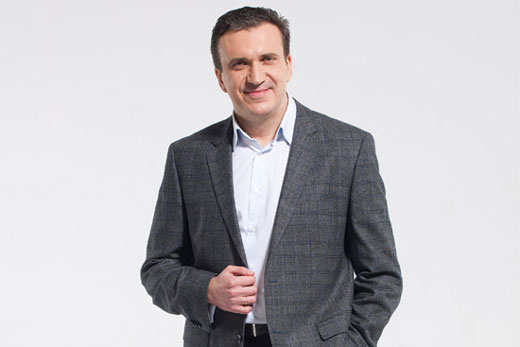When Pavlo Sheremeta got the phone call on a Saturday in February asking him to serve as minister for economic development and trade as part of a "kamikaze" interim government for Ukraine, he didn't plan to hold the position for long.
The protests that had rocked the country for months reached a crescendo on February 20, when dozens of people were shot down in the streets of Kyiv. The next night, then-President Viktor Yanukovych fled the capital. His exodus offered a moment of shocking relief for many—and the prospect that one of the greatest European crises of the twenty-first century was coming to a close.
In the days that followed, an interim government was formed under Prime Minister Arseniy Yatseniuk and tasked with holding the country together until presidential elections in May. But there needed to be budget reforms to bring in emergency loans before then; otherwise Ukraine might just emerge from a political maelstrom only to have its economy, which had been on the brink of ruin for months, finally fall apart altogether.
Why Sheremeta? After receiving his MBA from Goizueta Business School, he became well-known for his role as a business school leader and for his writings and talks on economic reform, and he brought international experience as a consultant. He was not a political veteran, nor was he beholden to the system. One side of that coin: He brought a freshness of ideas, a combination of energy and pragmatism that could help transform Ukraine's troubled economic landscape. The other side of the coin: He brought no experience helming a hide-bound ministry of 1,300 employees that, in turn, is part of a government structure not known for its friendliness to business.
It was a given that dealing with parliament would be an ordeal; the president's departure in February wasn't accompanied by a housecleaning in the legislature, dominated by supporters of the former administration. March brought the Russian annexation of Crimea. Summer brought a full-blown civil-cum-proxy war around Donetsk in Luhansk.

